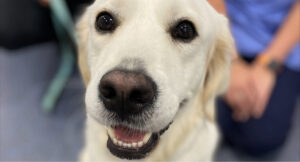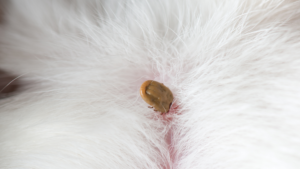Puppies and kittens can seem like a beautiful gift for Christmas (or any other occasion). However, before making the decision, make sure you ensure the receiver is up for the lifelong commitment, costs and has the appropriate resources (space and so on) to have a pet in their lives. Sadly, many animals are gifted each year and are rehomed or surrendered to a shelter shortly after. It may seem obvious, but the novelty of a cute puppy can wear off when the time, attention, needs, and mess become apparent, or when they grow up to be an adult and aren’t seen as ‘cute’, any longer.
Here, we tell you everything you should consider and commit to before making the decision to gift a pet.
Lifestyle and family dynamic – Puppies and kittens essentially require time, energy, and attention akin to that of a newborn (human) baby! They require regular feeding and toileting opportunities, physical exercise and play, and early correct socialisation and training. Ensure who you’re gifting a puppy or kitten to is committed and able to fulfill these requirements every day.
Also consider the dynamic of the family, if there are children in the family, are they of an age to help with aspects of raising the pet or will it add extra workload to an already busy parents schedule? What are the receivers work schedule and are they able to take time off work initially to help the pet settle in? How much time can they dedicate to the pet specifically daily?
Breed selection
This is mostly relevant to dogs but can apply to cats also. Research is imperative when selecting what breed of dog to get. Selecting a pet based off their appearance is a big no-no. Breed specific traits (herding, retrieving, guarding, for example) can play a huge role into the behaviours and tendencies the dog will have. Keep in mind, these are genetic ‘hard-wired’ traits that, when not given an adequate and appropriate outlet, can create frustration and result in problematic behaviours. Home location (busy city apartment or wide-open spaces) can greatly impact both cats and dogs and their wellbeing. Exercise requirements can greatly vary between breeds with some dogs requiring hours of ‘work’ (physical and mental) each day to be content and happy. Potential health and welfare issues should also be considered when selecting a breed, particularly with the popularity of “Brachycephalic” or short nosed breeds. According to PetSure data from 2013 to 2018, these breeds have a higher prevalence for many major health problems including patella luxation, skin conditions, eye conditions, anal gland problems, digestive diseases, and ear infections as well as brachycephalic airway syndrome.
Finances
There are many costs involved with pet ownership that can be easily overlooked during the excitement of purchasing a pet and extend well beyond that initial purchase price. Annual vaccinations, de-sexing, other veterinary costs, food, bedding, accessories like leads, collar, harnesses, grooming services or tools, toys, preventative treatments like worm, tick and flea control, and training are just a few costs associated with pet care. Pet insurance can help with unexpected vet expenses and is also something to consider when purchasing a new pet.
Training
Many owners opt for their pups to attend a puppy pre-school before the age of 16 weeks to aid with critical socialisation and learning. Sourcing a reputable puppy school is important as this period greatly impacts your dog later in life. However, the learning does not end there. Dogs can develop fears and behavioural problems that require the assistance of a reputable dog trainer and/or a behavioural veterinarian which can be stressful and involve considerable costs.
Time of year
The Christmas and New Year period can be chaotic! We often find ourselves racing between visiting family and friends, going away on holidays, welcoming guests into our homes and may be away from the home for extended periods of time. This can be a stressful period for us, and it is no different for our pets. Unless you have a particularly relaxed and time-plenty holiday period, it is not an ideal time to be welcoming a new pet into your home.
Sourcing the pet
While puppies and kittens are unquestionably cute, you could consider adopting an older pet from a shelter who needs a loving home. It can be difficult to know the source of puppies and kittens when purchased, as many puppy-mills or ‘backyard breeders’ (unregistered breeders illegally breeding animals) can be very convincing online or in person and make large profits during holiday seasons which continues the cycle of inhumane breeding, as opposed to sourcing a pet from a humane shelter (such as the RSPCA) or from a registered and experienced breeder.
Pets deserve a forever loving home with a family who are committed to them. Before giving a pet as a gift, it is imperative that the receiver is aware and has agreed upon the decision to welcome a new addition to the family. Ideally, have the receiver involved throughout the process to ensure it is a suitable match for both pet and pet parent.
REFERENCES
Pet insurance can help by covering a portion of the eligible vet bill if the unexpected happens. Because it is difficult to predict the costs of veterinary care, it can help to have measures in place to help prepare for the unexpected. Check out our partner network and explore our policy tools to find a pet insurance policy.
Not all conditions or items are covered by Pet Insurance. Refer to the applicable Product Disclosure Statement for information about coverage and exclusions.








